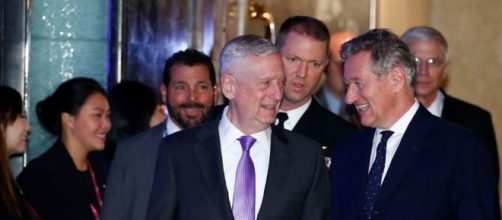U.S. Defense Secretary James Mattis said in a conference in Singapore that he looks forward expanding military cooperation with Thailand. This is after the Thailand government recently began to embrace democratic policies and governance.
Why did the Philippine relationship with the U.S. grown cold?
Since the assumption of Philippine President Rodrigo Duterte in 2016, the South East Asian nation had began a systematic shift of policy. From being an staunch ally of the United States, Duterte's admin now looks towards china and Russia for economic and military aid.
The strain further worsen when Duterte ranted about the United States offering second-hand weapons to the Philippine army, which is in need of rapid modernization. Duterte, furious at the America's treatment flew to Russia to meet with Vladimir Putin for help. The Russian president showed positive response to Duterte's request and have drafted agreements that will cement the deals that will be made.
How will Thailand's pivot to Washington affect China?
According to Mattis, U.S. policy in Asia is to focus on crisis management, terrorism, nuclear threats and cybercrime. However, the defense secretary also added that China's expansionist ambition in the South China sea is also a source for concern that should be dealt with.
Thailand will work closely with the United States, Australia and New Zealand on securing the regional security in the South China sea. It is not certain what kind of military cooperation will Thailand have with the United States, but Washington and the Pentagon are in need of finding new allies to work with after the Philippines had grown sour.
What is China's response to America's presence in the region?
China continues to protest all U.S. operations made in the South China sea. Beijing states that these operations are in violation of their right of ownership of almost the entire area. Because of this, China is slowly strengthening its bases in the South China sea and its artificial islands.
The South China sea is a major shipping lane for dozens of countries and for Beijing to monopolize this trade route will be devastating.
In order to counter this, the United States conducts Freedom of navigation operations in the area to enforce international laws ratified by the United Nations. The moves taken by the U.S. military and navy irritates Beijing threatening to hinder the needed cooperation between to two major countries to stop North Korea from its belligerent stance.


